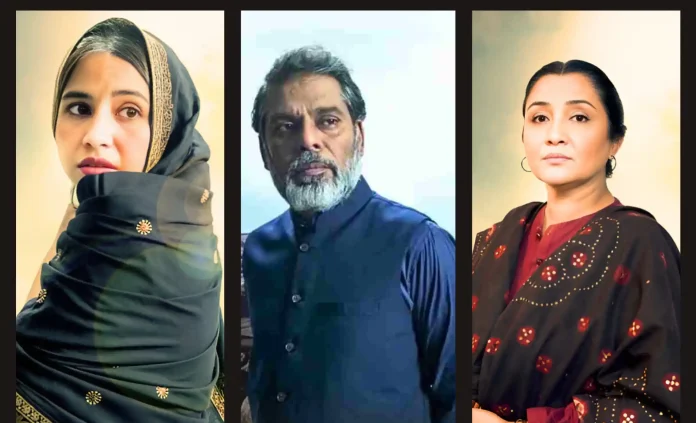Every once in a while, we get to see a drama that truly moves us, makes us think, and makes us feel something. One such masterpiece is Kabli Pulao. Only six episodes have been released so far, but the drama’s intriguing plot, acting, and direction have already captivated us. Excellent camerawork, extra points!
Barbeena (Sabeena Farooq), a widow from Afghanistan, is the protagonist of Kabli Pulao. She marries Haji Mushtaq (Mohammed Ehteshamuddin), a middle-aged man also known as Haji saheb. Haji saheb takes her back to his house and introduces her as his housekeeper rather than his wife. It doesn’t take long for family members to notice that something isn’t quite right.
Without giving too much away, it is safe to state that the drama has already offered deep insights into the human experience, presenting a picture of fortitude, cultural fusion, and developing relationships despite having only a small number of episodes.
So far, Kabli Pulao has taught us the following valuable lessons:
1- Every cloud has a silver lining
Barbeena is a strong woman whose circumstances are challenging but not insurmountable. She is a widow and had to flee with her two brothers to Mardan, Pakistan after losing her husband, Baraan. She marries Haji saheb and begins her married life as a housemaid, where she is expected to pretend she is not in a relationship with her new husband. She is always kind and considerate, even though she has been the target of several passive-aggressive moves. The story of Barbeena serves as a powerful illustration of the human capacity for overcoming adversity. We keep going even when things get rough.
2- There is beauty in accepting each other
The nuptials between Barbeena and Haji saheb serve as the story’s focal point, emphasizing the depth to which we all carry unconscious biases and preconceived assumptions about others from different social or cultural origins. The emotional pain Barbeena goes through as a result of being falsely accused and labeled a spy because of her Afghan origin is conveyed to the reader from her perspective. As the plot develops, we see a metamorphosis.
We experience Barbeena’s joy as she introduces Haji saheb and his family to new foods, languages, clothes, and dances throughout the play.
True beauty emerges when people accept and value one another without trying to change them, as seen by this tale. It’s lovely to be accepted. The story highlights the value of accepting and appreciating one another’s differences.
3- Relationships require nurturing
Kabli Pulao also does an excellent job of showing how connections develop over time. It demonstrates how the discomfort and awkwardness of a first meeting may eventually give way to a true bond. Soon, the characters begin to look deeper, showing us that relationships are not simple, and that they require work on both ends.
4- Emotional support is true companionship
In Kabli Pulao, the marriage between Barbeena and Haji saheb questions traditional ideas of what it means to be in a relationship. The play challenges us to reconsider our assumptions about age, culture, and social norms, while also serving as a timely reminder that true friendship is forged through shared experiences, mutual respect, and emotional support.
5- Nobody can judge a book by its cover
The fact that first impressions aren’t always accurate is probably the most essential thing to take away from this drama. Every person and family has their own struggles to overcome. It’s simple to act arrogantly. Barbeena, Haji saheb, and others like Shamim, Chammo, Abdullah, and others all show us their inner turmoil. We also get to glimpse the private difficulties of a regular family who, behind the pretext of respect, desperately wants to be accepted by society. The lesson we take away is that kindness can go a long way.
The drama Kabli Pulao is also a biting social satire. It’s a look back at who we are as a civilization and as people in this world.
We can’t wait for Green Entertainment to telecast the next episode of the drama every Tuesday night at 8 o’clock.


